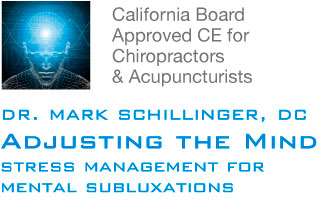Research
 The most relevant research in stress reduction is occurring in the field of Mindfulness-Based-Stress-
The most relevant research in stress reduction is occurring in the field of Mindfulness-Based-Stress-
Mindfulness Research Monthly – American Mindfulness Research Foundation
Mindfulness Research – National Institutes of Health
MBSR Research – UMass Medical School
Scientific Publications & Current Projects – Center for Investigating Healthy Minds, U. of Wisconsin
Some of my favorite writers, researchers and institutions:
Bruce Lipton , Joe Dispenza, Fritjof Capra, Herbert Benson. Jon Kabat Zinn, Daniel Goleman, Martin Seligman, Kenneth Pelletier, Candace Pert, Byron Katie, Daniel Amen, Dan Siegel Amit Goswami, Fred Wolf, Lynn McTaggart, Rick Hanson, Donald Epstein, Carolyn Myss, James Oschman, HeartMath, Huston Smith, Ken WilberIchak, Ichak Adizes, Brian Swimme, Robert Sapolsky, Martin Rossman, Ken Dychtwald.
Sampling of Research
Luders E, Cherbuin N and Kurth F Forever Young(er): potential age-defying effects of long-term meditation on gray matter atrophy; Frontiers in Psychology, 21, January 2015
Roemer, L., & Orsillo, S. M. Expanding our conceptualization of and treatment for Generalized Anxiety Disorder: Integrating mindfulness/acceptance-based approaches with existing cognitive-behavioral models. Clinical Psychology: Science and Practice, 9(1), 54-68.
Delmonte, M. M. Meditation and anxiety reduction: A literature review. Clinical Psychology Review, 5, 91-102.
Sally Ross. Self-Inquiry: Life’s Most Empirical Investigation, Journal of Nondual Psychology, Vol. 5.
Lehrer, P. M., Schoicket, S., Carrington, P., & Woolfolk, R. L. Psycho-physiological and cognitive responses to stressful stimuli in subjects practicing progressive relaxation and clinically standardized meditation. Behavioral Research and Therapy, 18, 293-303.
Monk-Turner, E. The benefits of meditation: Experimental findings. The Social Science Journal, 40.
Martin, S. The power of the relaxation response – A behavioral medicine pioneer reports on a time-tested technique that reverses aging and improves health. American Psychological Association, 2008, Vol 39, No. 9.
Joe Utay, Megan Miller. Guided imagery as an effective therapeutic technique: a brief review of its history and efficacy research. Journal of Instructional Psychology.
Feldman, G. Differential effects of mindful breathing, progressive muscle relaxation, and loving-kindness meditation on decentering and negative reactions to repetitive thoughts
Behavior Research and Therapy, Volume 48, Issue 10.
Kutz, I., Borysenko, J. Z., & Benson, H. Meditation and psychotherapy: A rationale for the integration of dynamic psychotherapy, the relaxation response, and mindfulness meditation. American Journal of Psychiatry, 142, 1-8.
Graham G, Michael A. Saini. An Evidenced-Based Review of Psychological Treatments of Anger and Aggression. University of Toronto.
Seung-Joo Lim, Chunmi Kim, Effects of Autogenic Training on Stress Response and Heart Rate Variability in Nursing Students, Asian Nursing Research, Volume 8, Issue 4.
University of California – Berkeley, Expanding the Science and Practice of Gratitude
Harvard Health Publications, In Praise of Gratitude,
Brigid Barron, Linda Darling-Hammond, Cooperative learning and inquiry-based teaching yield big dividends in the classroom. And now we have the research to prove it. Edutopia.
Debra S. Burns, The Effect of the Bonny Method of Guided Imagery and Music on the Mood and Life Quality of Cancer Patients, Journal of Music Therapy.
Science News, New breathing therapy reduces panic and anxiety by reversing hyperventilation
Harvard Health Publications, Breath control helps quell errant stress response
Brown R, Gerbarg P, Yoga breathing, meditation and longevity, New York Academy of Sciences.
Mark’s seminar is a must see for every chiropractor. He teaches from many years of experience in demonstrating how the mind plays a role in our healing process. His techniques are easily learned and can be successfully implemented into your practice the following week of taking his course.

